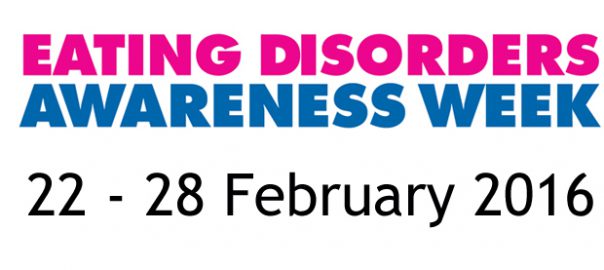
Eating Disorders
Eating Disorders Awareness Week this year is 22nd– 28th February. A recent survey showed that as many as 6.4% of adults in the UK show symptoms of an eating disorder (a similar prevalence to diabetes). Most eating disorders start in adolescence although children as young as 6 have been diagnosed with anorexia and older adults can also develop symptoms. It is unfortunate that outside adolescence eating disorders are more likely to be misdiagnosed.
There is a belief that eating disorders are all about a desire to be thin, and while this can be a central issue there is a lot more to understand. The typical picture may be an emaciated girl looking at herself for hours in the mirror seeing an obese girl looking back. But what about the woman who dreads the office party because she’ll have to calculate the calories in every hors d’oeuvre that’s passed around? How about the man who dreads colleagues’ birthdays because doughnuts will be brought in, if he has one, the overwhelming guilt will lead him to purge it? Or the lorry driver getting behind with his deliveries because the urge to eat cannot be resisted and he has to stop more frequently than the schedule allows?
People with eating disorders often lead hidden and secretive lives where even close friends and family are unaware of the depths of the despair felt by the suffering individual. Most of the disease is in the mind but even the symptoms that are difficult to hide e.g. extremely low body weight or excessive exercise can often be brushed off as an extension of the norm or extreme healthiness! For me, I wanted to lose weight because I wanted to disappear. I was under the misconception that I could control my emotions if I controlled my food. I thought if I could restrict my food, I could avoid painful emotions. Unfortunately, the more I restricted, I was achieving what I wanted, to be smaller but my emotions just seemed to get more unbearable.
Figures now say that 45% people who suffer with anorexia and bulimia will fully recover; this figure will only improve with greater awareness, earlier diagnosis and better treatment option. This is not a promotional blog for better funding but I fear the recent mental health funding cuts are going to have a negative impact on outcomes for people with eating disorders.
Anorexia is the number one killer within the mental health world, from medical complications and from suicide. The low mood associated with eating disorders cannot be underestimated, it perpetuates the downwards spiral of physical and mental health that prevents the sufferer taking advantage of the support on offer. Someone with anorexia will restrict their food intake and may also exercise excessively in order to lose weight. Someone will suffer with anorexia for an average of 8 years and with bulimia for an average of 5 years. This is too long and often, permanent damage will have been done. Hormonal imbalances are often long standing. The initially menstrual irregularities can lead to difficulties conceiving and problems in pregnancy and childbirth. Even though I’m in recovery, my fear is that I’ve done myself long term damage.
Awareness of the medical complication of binge eating disorder is increasing. Eating too much of the wrong foods can lead to obesity which is the leading risk factor for heart disease, diabetes, stokes, joint disorders and many cancers. This is not just laziness or greediness, it is a compulsion, an uncontrollable urge to consume large quantities of food, often followed by feelings of guilt and shame. Once the cycle has been kicked off, by a traumatic life event, low self-esteem, loneliness, etc., the disorder is perpetuated by blood sugar levels rising rapidly, followed by insulin, cortisol and adrenaline fighting to control the effects on the body. Blood sugar levels crash and false messages are then sent to the brain, the cravings for more unnecessary foods continue. The strain put on organs can be catastrophic. People struggling with binge eating disorder can hide their secret for many years, blaming themselves, fearing consequences and judgements if they share their experiences.
Some with bulimia is caught in cycles of binging (rapidly ingesting large quantities of food in a short space of time) and purging (vomiting or using laxative and diuretics). The purging associated with bulimia perhaps causes some of the most alarming medical complications. Suffers may damage their oesophagus or bowel. Chronic dehydration from vomiting and laxative and diuretic abuse and mineral imbalances can lead to kidney damage/failure and irregularities in how the heart functions.
Instead, we are more likely to see someone who uses food, or the control of food to manage their emotions or to fill a void in their life. It may not seem that serious but no-one can know what’s really going on and things can quickly spiral out of control. So, how can we help?
- Be a friend – just ask them how they are, and mean it. Someone doesn’t need to talk about what they did or didn’t eat last night but saying they’re feeling a little lonely or a bit low at the moment might be the first step towards accepting help. Listen to what they say.
- Don’t comment in public – commenting on someone’s weight or what they’re eating/not eating in public is really insensitive. If you’re concerned about a change in weight or eating habit, talk to them in private, say you’re concerned and offer them an opportunity to talk and listen to them but don’t force the issue.
- Offer alternatives – socialising in our culture often revolves around food – if you suspect someone’s struggling, consider alternatives…bowling, watching a film/TV, playing games/board games or getting crafty (making cards, jewellery, knitting etc) together. If food is necessary, make it part of the event rather than the main focus.
Think about this…if you have 300 friends on Facebook,
- 20 of them will have an eating disorder,
- 10 will have symptoms serious enough to warrant a diagnosis of anorexia or bulimia.
- One of them will die prematurely from complications.
- 10 will have symptoms serious enough to warrant a diagnosis of anorexia or bulimia.
By raising awareness, I’m hoping we can reduce these figures. Just a couple of last points I want to make.
To people who are struggle…
You might be in denial but deep down, you know things need to change and you know you need help – I’m not going to pretend it’s easy, it’s a long and tough road but it is worth it, please, please, show yourself some compassion and give it a go, recovery is possible, life is there for the taking, you can do it.
To friends and relatives…
I know you will be in pain watching your loved one but it’s important to remember that only the individual can ask for help and follow through with recovery, no-one can do it for them or force them through it. You can be there for them but it’s also really important to look after yourself.




